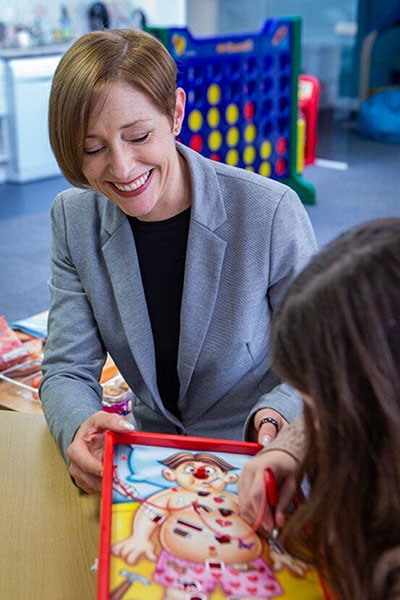Children with special needs are especially at risk of exclusion from primary school and then failing in secondary school, new research shows.
The study found that more than 90 per cent of children excluded in primary school do not go on to pass their GCSEs in English and maths.
And it found that almost all of the children excluded at primary school (up to 97 per cent) have special needs.

Chance UK chief executive Vanessa Longley says it is crucial to get in early to support children
Charity Chance UK compiled the figures. Its report, Too Young to Leave Behind, says increasing numbers of children are struggling after the pandemic.
It says suspension rates for primary school children are now at their highest since 2006.
Primary schools exclude up to 22,000 children
The charity found that primary schools in England excluded or suspended up to 22,000 children aged six and under in 2022.
It maintains that primary school exclusions start “a devastating never-ending cycle of difficulties for the child”. As a result, achievement and attendance suffer at secondary school.
Vanessa Longley is the chief executive of Chance UK.
She said it is a mistake to wait until a child reaches secondary school before tackling the impact of primary school exclusions.
Exclusions ‘pass the problem to others’
Longley said it is crucial to “get in early to support children who are struggling”.
And exclusions merely pass the problem on to families or another school, insists the charity.
Instead, the charity says pupil mentoring is the way forward.
The group says up to 80 per cent of the children it mentors see their attendance improve. And even more children make behavioural improvements at home and in school.
Data from 3.2 million pupils
The study took in data from 3.2 million pupils in England. It found primary schools suspended or excluded 2.4 per cent of them, or one child in every 40.
A spokesperson for the Department for Education said primary school exclusions are a “last resort”.
However, the Department added that it supports head teachers who use exclusions to “provide calm, safe, and supportive environments”.
It offers “alternative provision schools” for pupils at risk of exclusion. It says these schools provide “targeted support early on, helping improve behaviour, attendance and reduce the risk of exclusions”.
Related:
- Government gets tough on exclusions
- Exclusion forces parents to give up job
- ‘Repugnant’ school exclusions banned
- Legal fight over exclusion for behaviour
- Schools ‘unable’ to stop exclusions
- MPs back call to cut school exclusions
- School behaviour policies may break law
Published: 24 April 2024















